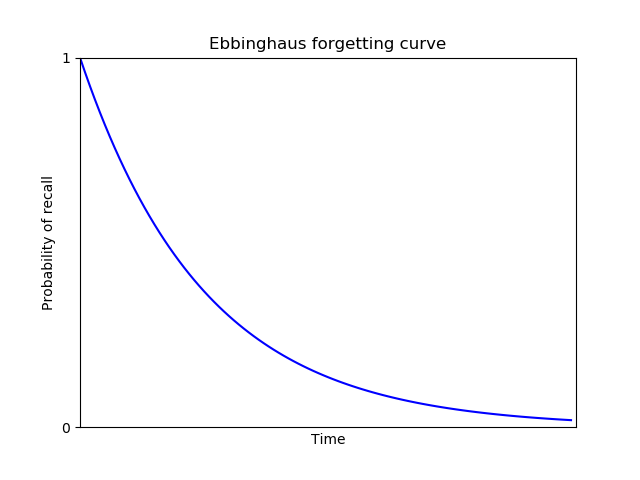@Effective learning Twenty rules of formulating knowledge
1 Do not learn if you do not understand :-> 如果不理解不如不学
2 Learn before you memorize :-> 先学再记
- 对学习的知识建立一个整体印象
3 Build upon the basics :-> 从基础开始
4 Stick to the minimum information principle 最小信息原则 :<-> cards should never ask about more than one thing
- 之前多个合在一起的正则卡片学习体验很差
5 Cloze deletion is easy and effective :-> 填空简单而有效
6 Use imagery :-> 图片
7 Use mnemonic techniques :-> 使用助记技巧
8 Graphic deletion is as good as cloze deletion :-> 图片填空
9 Avoid sets :-> 避免答案是一大堆正确但是无序的集合
10 Avoid enumerations :-> 避免枚举类型,比如字母表
11 Combat interference :-> 对抗干扰,如何处理容易混淆的问题。尽早处理。
- 利用自己特殊的例子辅助记忆
12 Optimize wording :-> 优化措辞,减少多余信息
13 Refer to other memories :-> 相互链接记忆
14 Personalize and provide examples :-> 建立材料与个人的联系并给出例子
15 Rely on emotional states :-> 借助情绪状态
- 使用当前状态记忆,比如你在失落的时候记住一个单词,再次失落时可能想起这个单词
16 Context cues simplify wording :-> 利用上下文简化记忆(标注是哪一个领域的问题等)
17 Redundancy does not contradict minimum information principle :-> 冗余但不违背最小信息原则
冗余是比需要的信息更多的信息。最小信息不代表字符数最小
从多个角度记忆同一个内容
18 Provide sources :-> 提供信息来源
19 Provide date stamping :-> 提供时间标记
20 Prioritize :-> 明确优先级调整阅读顺序
- effective learning is all about
prioritizing. In incremental reading you can start from badly formulated knowledge and improve its shape as you proceed with learning (in proportion to the cost of inappropriate formulation). If need be, you can review pieces of knowledge again, split it into parts, reformulate, reprioritize, or delete. See also: Incremental reading, Devouring knowledge, Flow of knowledge, Using tasklists
